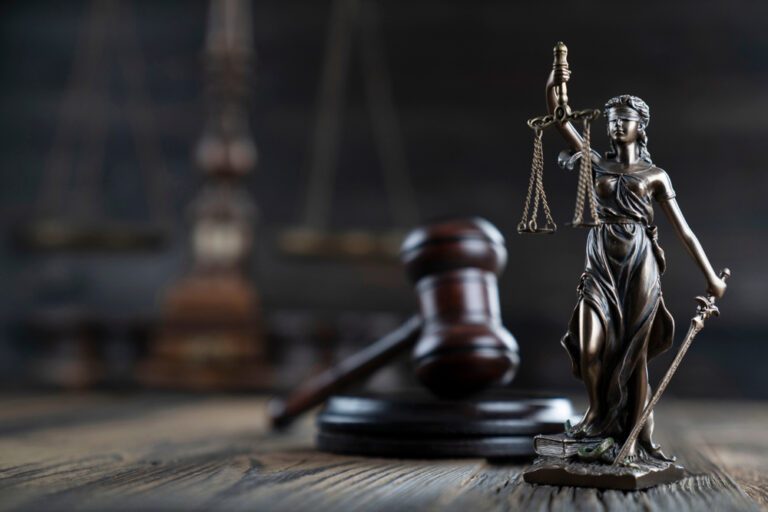Ethics Opinion 1261: Conflicts of Interest
7.31.2023

TOPIC: Conflicts of Interest
DIGEST:
An attorney may not represent a current criminal defense client in connection with providing testimony before a grand jury against a former criminal defense client unless the former client gives informed consent in writing and the disclosure of such representation will not be prejudicial or detrimental to the interests of the current client. Inasmuch as such disclosure and consent of the former client would not be required if the attorney withdrew from the current client’s representation and was succeeded by counsel untainted by the prior representation, the conflicted attorney should give serious consideration to, and discuss with the current client, whether such withdrawal would be in the current client’s best interests.
RULES:
1.0(e), 1.0(j), 1.2(a), 1.4(a)(b),1.6, 1.9, 4.2
FACTS:
- The inquirer was assigned as counsel to represent two defendants in unrelated criminal matters. In one of the matters the inquirer was subsequently relieved as counsel for the defendant (now “Former Client”), but he continues as counsel in the other matter for the remaining defendant (“Current Client”). Although the inquirer is unaware of any information the Current Client possesses about the Former Client, he has been advised by the district attorney that the Current Client will be called to testify before the grand jury concerning the Former Client. The Former Client and the Current Client never mentioned each other in their respective confidential client-attorney conversations with the inquirer, and the inquirer believes that the subject matter of the Current Client’s anticipated grand jury testimony has no evidentiary relevance to the Current Client’s case.
QUESTIONS:
- May the inquirer continue to represent the Current Client?
- May or must the inquirer inform the Former Client that the Current Client may testify as a witness against the Former Client before the grand jury?
OPINION:
Is there a Conflict of Interest Between the Former Client and the Current Client if the Inquirer Represents the Current Client in Connection with His Testimony Against the Former Client?
- Rule 1.9 of the New York Rules of Professional Conduct (“Rules”) governs the duties owed to former clients. Paragraph (a) of Rule 1.9 provides:
A lawyer who has formerly represented a client in a matter shall not thereafter represent another person in the same or a substantially related matter in which that person’s interests are materially adverse to the interests of the former client unless the former client gives informed consent, confirmed in writing.
- Accordingly, absent Former Client consent, the inquirer would be precluded from representing the Current Client if the matter in which the Current Client will testify is “substantially related” to the matter in which the inquirer previously represented the Former Client and the interests of the Current Client and Former Client in that substantially related matter are “adverse.”
- Comment [3] to Rule 1.9 provides guidance for determining whether matters are “substantially related” and states in pertinent part: “Matters are related for purposes of the Rule if they involve the same transaction or legal dispute . . .” Here, the Current Client will be giving testimony in the matter pending against the Former Client, which is the very same matter in which the inquirer previously represented the Former Client. Accordingly, because the two matters are in fact the same matter, the “substantial relationship” component has been established, and we turn to the question of whether the interests of the Current Client and Former Client are “adverse” to each other in that singular matter.
- As with any criminal defendant, the interest of the Former Client is to defeat the criminal charges pending against him or to secure the most favorable negotiated plea disposition. Whether and to what extent the Former Client succeeds in achieving these objectives depends in large part on the quality and quantity of admissible incriminating evidence in the possession and control of the district attorney. Although we are unaware of the particular criminal charges lodged against the Former Client, or the specific relevance to those charges of the Current Client’s grand jury testimony, that testimony is sought by the district attorney to support the prosecution case in some important respect. Whether the evidence to be presented by the Current Client is only marginally useful to the district attorney in prosecuting the Former Client, or whether it provides proof of a key element required for criminal liability, it is certainly adverse to the Former Client’s interests for the Current Client to testify against him.
- Conversely, the Current Client shares the same objectives as the Former Client in his own unrelated criminal case – namely, to defeat the charges or to obtain the most favorable negotiated plea disposition. The prospect of cooperating with the district attorney and providing testimonial evidence against a defendant in another case, who happens here to be the Former Client, may provide the Current Client with substantial leverage for plea negotiations in the Current Client’s own case. To the extent that the Current Client’s testimony fills a gap in the proof required to sustain a conviction against the Former Client, corroborates a key element of the charges against the Former Client, or refutes a defense interposed by the Former Client, that leverage may be substantial. Accordingly, from the perspective also of the Current Client, the interest of the Current Client in securing a more favorable disposition of charges against him also puts the Current Client in a position of material adversity to the Former Client.
May the Former Client Waive the Rule 1.9 Conflict of Interest?
- Even though the inquirer has a conflict of interest with the Former Client under Rule 1.9(a) based on substantial relationship and material adversity, Rule 1.9(a) expressly provides that an attorney may represent a current client notwithstanding a conflict of interest with a former client if the former client “gives informed consent, confirmed in writing.” Rule 1.0(j) defines “informed consent” as follows:
“Informed consent” denotes the agreement by a person to a proposed course of conduct after the lawyer has communicated information adequate for the person to make an informed decision, and after the lawyer has adequately explained to the person the material risks of the proposed course of conduct and reasonably available alternatives.
- The process by which the inquirer in this case would seek to obtain informed consent from the Former Client, however, implicates other ethical rules and concerns.
- First, we believe that the testimony of a grand jury witness is (at least initially) cloaked by statute in secrecy, and we do not know whether and when (if ever) the grand jury testimony of the Current Client will be disclosed to the Former Client. The parameters and timing of any such disclosure are matters of law on which this Committee does not opine. Nonetheless, to the extent that the Current Client’s grand jury testimony against the Former Client remains secret, it is not likely to be in the Current Client’s interest for the Former Client to know that the Current Client is providing evidence against him. Such knowledge might invite witness tampering, intimidation, physical violence, or other actions by the Former Client or the Former Client’s friends and allies that are prejudicial or damaging to the Current Client. Proceeding down a path which could foreseeably result in harm to the Current Client raises issues of competence under Rule 1.1(c)(2) (“A lawyer shall not intentionally … prejudice or damage the client during the course of the representation . . .”).
- Second, the situation raises issues of communication under Rule 1.4, which requires the inquirer to promptly inform the Current Client of “material developments” and to keep the client “reasonably informed about the status of the matter.” See Rules 1.4(a)(1)(iii) and (3). See also Rule 1.4(b) (“A lawyer shall explain a matter to the extent reasonably necessary to permit the client to make informed decisions regarding the representation.”); and Rule 1.2(a) (“[A] lawyer shall abide by a client’s decisions concerning the objectives of representation and, as required by Rule 1.4, shall consult with the client as to the means by which they are to be pursued.”)
- Third, issues regarding the duty of confidentiality arise under Rule 1.6. Both the substance of the Current Client’s grand jury testimony and the naked fact that the Current Client is to provide secret grand jury testimony against the Former Client may well be “confidential information” within the meaning of Rule 1.6, which provides that a “lawyer shall not reveal confidential information. . . or use such information to the disadvantage of a client” unless certain requirements are met, including that the client gives informed consent. “Confidential information” consists of information gained during or relating to a representation of a client, whatever its source, that is (a) protected by the attorney-client privilege, (b) likely to be embarrassing or detrimental to the client if disclosed, or (c) information that the client has requested be kept confidential.” Accordingly, the same concern for the Current Client’s safety that arises under Rule 1.1(c)(2) may be relevant here. It is likely to be “detrimental” to the Current Client for the Former Client to know that the Current Client is to be a witness against him, especially if a likely consequence of that knowledge would be witness tampering, intimidation, physical violence against the Current Client, or even adverse social consequences.
- Fourth, issues concerning withdrawal under Rule 1.16 must be considered. Rule 1.16(c)(1) allows an attorney (subject to the court’s approval) to withdraw from representing a client where such withdrawal “can be accomplished without material adverse effect on the interests of the client.” Here, the inquirer should consider whether the duty of confidentiality to the Current Client will prohibit the inquirer from obtaining the informed consent of the Former Client because the inquirer may simply be unable to reconcile the Current Client’s interest in leveraging his cooperation in providing testimony adverse to the Former Client in order to secure a more favorable plea disposition with the interest of the Current Client in avoiding the risk of harm occasioned by the Former Client’s knowledge of that cooperation. It may well be that both of these important interests of the Current Client can be protected only if the Current Client is represented by an attorney who is not ethically obligated to seek informed consent from the Former Client regarding the Current Client’s anticipated grand jury testimony, because only in that event can the secrecy of the Current Client’s testimony before the grand jury be protected from disclosure to the Former Client. If the Former Client is not informed of the Current Client’s grand jury testimony, the risk of physical or other harm to the Current Client will be substantially reduced or eliminated entirely.
- Finally, even if (i) the inquirer determines that the Current Client will not be prejudiced by the Former Client learning that the Current Client will be providing grand jury testimony against him, (ii) the inquirer fully explains to the Current Client the benefits to be gained by cooperating with the district attorney and the risks of disclosing the Current Client’s cooperation to the Former Client, and (iii) the inquirer obtains the Current Client’s consent to disclose confidential information to the Former Client in order to seek the Former Client’s consent to the inquirer’s continued representation of the Current Client, the inquirer must still be mindful that, absent consent, Rule 4.2 requires the inquirer to communicate through the Former Client’s current counsel in the Former Client’s criminal case, not directly with the Former Client. Rule 4.2(a) provides:
In representing a client, a lawyer shall not communicate or cause another to communicate about the subject of the representation with a party the lawyer knows to be represented by another lawyer in the matter, unless the lawyer has the prior consent of the other lawyer or is authorized to do so by law.
- In sum, without knowing the particulars of the charges or the evidence against the Former Client, and without knowing the details of the testimony the Current Client can offer the district attorney, we cannot say that the path for obtaining the consent of the Former Client to the continued representation of the Current Client by the inquirer is impassable. We can, however, say that there are many obstacles that must be surmounted along that road, all of which would be avoided by permissive withdrawal pursuant to Rule 1.16.
May or Must the Inquirer Inform the Former Client of the Current Client’s Testimony?
- Nothing in the Rules requires the inquirer to inform the Former Client about the Current Client’s testimony either before or after it is given. Moreover, Rule 1.1(c)(2) may prohibit the inquirer from informing the Former Client about the Current Client’s grand jury testimony because doing so may prejudice or harm the Current Client. Laws governing grand jury secrecy (on which we do not opine) may also prohibit the inquirer from informing the Former Client about the Current Client’s grand jury testimony. Even if the inquirer can navigate around Rule 1.1(c)(2) and grand jury secrecy laws, the inquirer would still have to obtain the Current Client’s informed consent without transgressing Rules 1.2, 1.4 and 1.6. That is a tall order.
CONCLUSION
- An attorney may not represent a current criminal defense client in connection with providing testimony before a grand jury against a former criminal defense client unless the former client gives informed consent in writing and the disclosure of such representation will not be prejudicial or detrimental to the interests of the current client. Inasmuch as such disclosure and consent of the former client would not be required if the attorney withdrew from the current client’s representation and was succeeded by counsel untainted by the prior representation, the conflicted attorney should give serious consideration to, and discuss with the current client, whether such withdrawal would be in the current client’s best interests.
(08-23)






